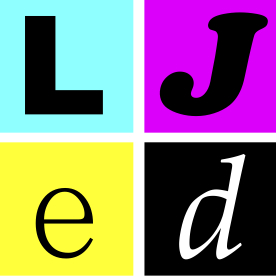 I try not to do politics on the blog, and for that matter I don’t usually swear here either. So if these things might bother you, please look away now – come back next time, when I’ll be discussing the merits of standing desks, or the pros and cons of the Oxford comma! [The comma one’ll never happen – Ed.]
I try not to do politics on the blog, and for that matter I don’t usually swear here either. So if these things might bother you, please look away now – come back next time, when I’ll be discussing the merits of standing desks, or the pros and cons of the Oxford comma! [The comma one’ll never happen – Ed.]
As editors, we quickly discover that one of the main aspects of our job is the ability to fade into the background. We learn to channel other people’s words and thoughts, helping them to express their meaning, while avoiding imposing our own preferences or message. For this reason, usually I try to steer clear of politics when writing here and in my dealings with clients. If I were returning an urgent assignment on the day the world was about to end, say, it’s possible I might refer to it obliquely in my sign-off, but qualified with a smiley face just in case my client happens to think that Armageddon is totally cool.
This morning, though, I woke up with my heart pounding and my head buzzing. For once, I hadn’t had a nightmare about Donald Trump, which was nice. Instead I was fizzing with the need to write about what it feels like to be holding a red pen up against a torrent of bullshit. What it feels like to be editing in times of extreme darkness.
For the record, I’ll briefly nail my colours to the mast. I wish I lived in a world with no borders, where everyone was considered equal, everyone was allowed to live a life following their dreams and interests, there were no weapons, and everyone worried about the environment. Oh, and people wouldn’t die in hospital corridors while they waited for a bed in one of the richest countries in the world. That’s pretty much it. (I know – deluded, right? You can see why I ended up floundering around in a soppy career like editing.)
I could be wrong, but it seems to me that there are riches to go around for everyone, if we only had the will to share them. (Eight richest guys, I’m looking at you.) Surely, too, between us we have the expertise to figure out how to live more sustainably and stop completely fucking up our planet? Of course we do; we’re just prevented from doing this. We’re basically prevented from doing anything that deviates from the commonly understood good of making money and contributing to economic growth. Oh, and building walls around what we have to keep it safe from others.
Against this backdrop, it can sometimes be difficult to buckle down to editing. I climb upstairs to my office, one part of me raring to get stuck in to this book about architectural theory, or that article on multi-coloured lighting solutions … and another part of me is wilting already, and thinking that my job is utterly futile. Outside, the world burns.
And yet. perhaps now is as good a time as any to be working with words. At the moment, it can feel as if words are losing their meanings. Things aren’t what they used to be, that’s for sure, and they’re still changing fast.
For example, back in the summer I discovered that I was one of ‘the 48%’. ‘48% of what?’ you might well ask. Honestly – it hardly matters now. Like everyone else on 23 June 2016, I voted for something, but it sure as hell bore no relation either to the question on the ballot paper, or where we seem to be right now.
Anyway, no one really talks about the 48% any more. I’ve since been rebranded, as a Remainer, or a Remoaner, depending which newspaper you read. In the past few days, though, I have been urged by our great leader (don’t get me started) to desist from using this terminology, too. I think, if I understand correctly, I have now been repurposed as a Loser, and my task as a Loser is to give in gracefully, accept The Will of the People, set aside my actual thoughts and feelings and deep misgivings, turn a blind eye to the rampant xenophobia, coat myself in Union Jacks and pull together with all the other 65 million people on this bloody stupid little island and make this thing work. Take Back Control – yeah! Or something.
I’ve probably digressed, but you get my drift. Words matter, perhaps more now than ever. They are being appropriated and used against us. To provoke us into action and reaction; to shape our beliefs. We are told, for example, that something can be great again – not that, in many ways, it already was. We are told that the people have spoken – when strictly speaking, a great many of them are muttering confusedly on the sidelines. We are urged to ignore the pronouncements of experts. We are encouraged to overthrow the ‘elites’ – bearing in mind that elite doesn’t seem to mean what it did two years ago; I’m sure I didn’t used to be an elite, but now I think I’ve been promoted. Words are being used to steamroller our individual feelings and make us conform.
Some people think editors are ‘guardians of language’. I’ve never felt that – I’m not a prescriptivist – but perhaps in these dark times, when words seem to matter so much, and precise meanings matter more than ever, we could instead be vigilantes of nuance, helping in our small way to guard against against the obliteration of free thought and self-expression.
Liz Jones has worked as an editor in the publishing industry since 1998, and has been freelance since 2008. She worries a lot.


Brave, Liz and I concur.
LikeLiked by 2 people
Just when I’m seriously considering swearing off news completely, I read this. I can barely take it. As a dual national, I’m in the 48% in two countries – on the losing side twice, but only just. It seems the majority in each case feels the need to reinforce their very small margin by using the same rhetoric they used campaigning – post-truth empty platitudes that are leading us off a cliff edge.
LikeLiked by 2 people
Great blog Liz! Totally with you, on so many points. I’m just back home from my own (almost daily) rant in Lusaka supermarkets, where it seems we are unable to buy anything without it being double wrapped in plastic. This is a country that is swimming in plastic bags, that festoon the trees more colourfully than flowers. I hate plastic. With a vengeance. So I either take it out on the poor shop sellers who try to put my goods into new plastic bags when I’ve brought my own long-life variety; or perhaps when I’m arsed I try to explain why plastic is so bad for the planet. And roll on the day that Zambia either charges for these flimsy bits of destruction, or they are banned altogether as in Rwanda (or so I’m led to believe). So there you have my own rant today, in a totally sodden Zambia (height of rainy season here – making it very gloomy; as if the fart’s imminent inauguration isn’t enough). Chris
LikeLiked by 2 people
Sorry to butt (?) in, but an odd coincidence – I comment on a post from a blogger I noticed for the first time today. I pop back to see what else is brewing, while taking a break from editing my book set in … Lusaka and South Luangwa. Anyway, I agree, sad that over the last three decades, especially in rural Zambia, people have gone from re-using absolutely every last thing, including plastics, to decorating trees with plastic bottles. Pretty, but not good for the environment. Some years back I was in Mfuwe when they were trying to organise rubbish collection for the first time. Another great American export, mass consumerism and its inevitable aftermath – waste…
Oh – and like Valerie (comment above), my husband is a dual national and also voted on both the losing sides.Could we have a better year in 2017 please?
LikeLiked by 1 person
Thanks for putting my feelings so exactly into words, Liz. This is a particularly bad week for finding any reason to get up in the morning (particularly since the sun still isn’t rising in these parts until quarter past eight), but it is always good to be reminded that there are so many other people out there who feel the same as I do.
LikeLiked by 2 people
Thank you, Liz. Words do matter; each has a meaning, expressing a truth, and it is painful when politicians and others create confusion and fear by dismissing the meaning of the words they (or others) use. We are witnessing the cavalier warping of truth on a scale that threatens the democracy on which my country was founded. We are, as the apocryphal non-Chinese supposed curse goes, living in interesting times. I will fight by being vigilant and calling out lies when I hear them as best I can, insignificant mote of dust that I may be. Also, humor helps. (“Sad!”)
LikeLiked by 2 people
You have voiced my feelings exactly, Liz. Thank you. Words, and how they are used, are vital now, even more than before. Words need to be used carefully, thoughtfully, to help rather than hinder the traffic on the what now appears to be the road less well trod. Being one of the 48% and someone who lives much of her time just miles from the USA, I have a real sense of what is bordering on fear.
LikeLiked by 3 people
Liz I LOVE this. You say it so well. You made me cry for so many reasons, both good and bad.
LikeLiked by 2 people
Hear, hear Liz. I don’t think (trying not to get TOO political …) that it’s ever been more important, especially in politics, to be careful with the words, to take off the blinkers and understand nuance and the other’s point of view and to enable, rather than inhibit, wide and free expression. And if we editorial types can help in any way …
I hate that we live in the age of the sound bite and the tweet, where words have been chopped and pared, repurposed and made to do double-duty, and shades of meaning have been obscured by labels for everything and everyone. And I think it’s part of a wider social and political trend. We’re all getting shoeboxed, as people and nations, often according to the lowest common denominator, and few of our leaders seem able to see either the big picture or the small person, so intent are they on focusing on the immediate self, in both a personal and a national sense. They seem to look out from their shoeboxes and say (literally in the case of DT) ‘I don’t care’ or ‘It doesn’t affect us’. There’s too little empathy and too much of what Larissa MacFarquhar calls ‘that happy blindness that allows most people, most of the time, to shut their minds’.
It’s ironic that the same nation that facilitated European integration in 1947, looking beyond its own borders with imagination and compassion in an act of national altruism, now seems about to applaud Britain for leading the way in European DISintegration. How things have changed. Interesting to compare the words of Gen. George C. Marshall in 1947, which presaged the Marshall Plan, with those of Donald Trump in 2015, in terms of one nation’s attitude to the rest of the world. We’re all so insular these days, and I do find that extremely scary:
Marshall: ‘We are remote from the scene of these troubles. It is virtually impossible at this distance merely by reading, or listening, or even seeing photographs or motion pictures, to grasp at all the real significance of the situation. And yet the whole world of the future hangs on a proper judgment. … What are the sufferings? What is needed? What can best be done? What must be done?’
Trump: ‘That’s really a problem that affects Europe a lot more than it affects us … I would not care that much, to be honest with you, whether it goes in or it doesn’t go in …’ (re Ukraine and NATO)
Anyway, I’m with you on the nightmares Liz, and on ‘holding up a red pen against a torrent of bullshit’!
LikeLiked by 3 people
Thank you, thank you, thank you! You’ve described just how I’m feeling as an editor this week — and said it so well that I have nothing to add. Except that I’m glad I’m not the only one!
LikeLiked by 1 person
I’m currently editing a rather lengthy series of articles about Shakespeare. I’d love to spend the next four years doing that.
LikeLiked by 2 people